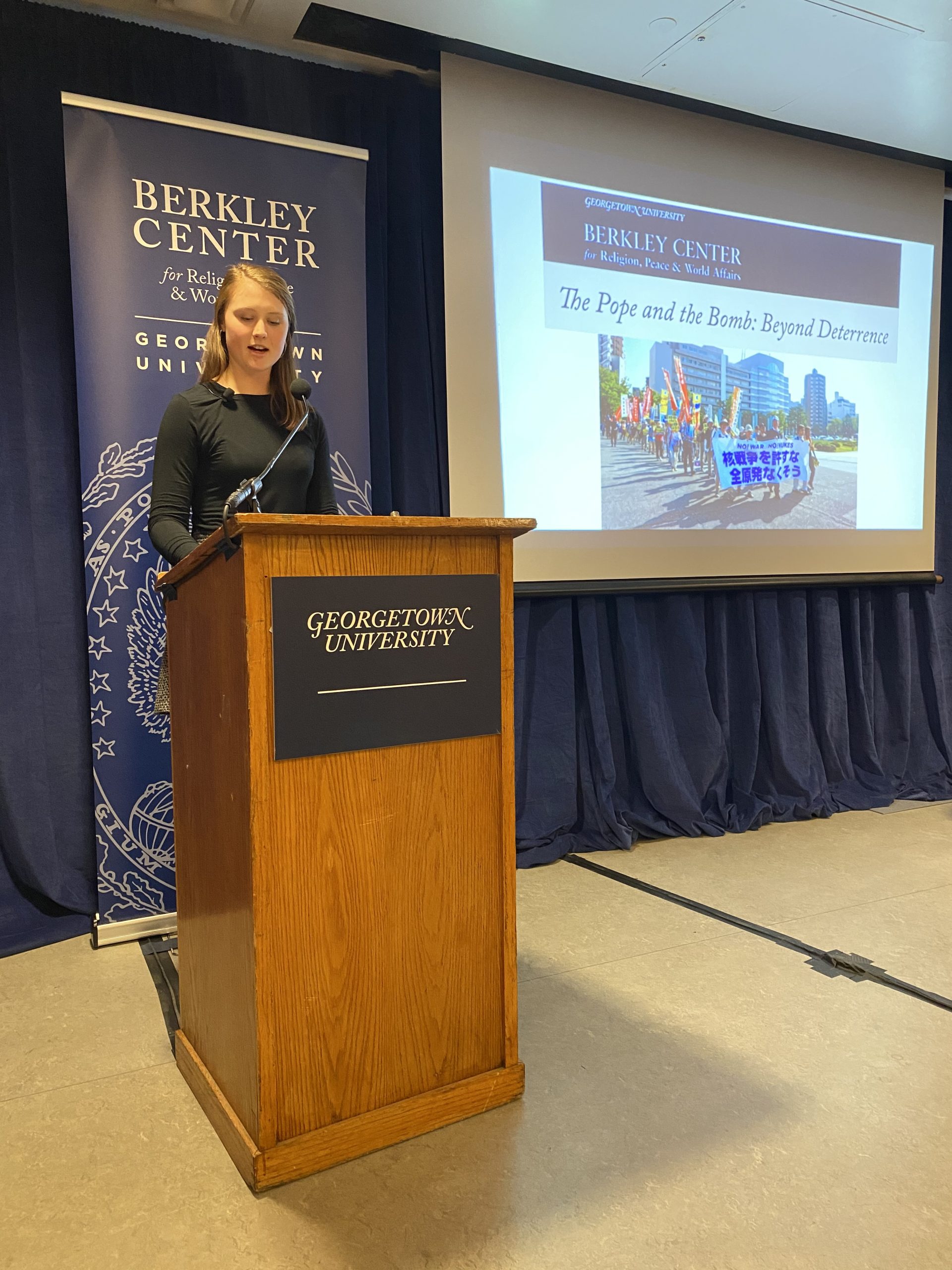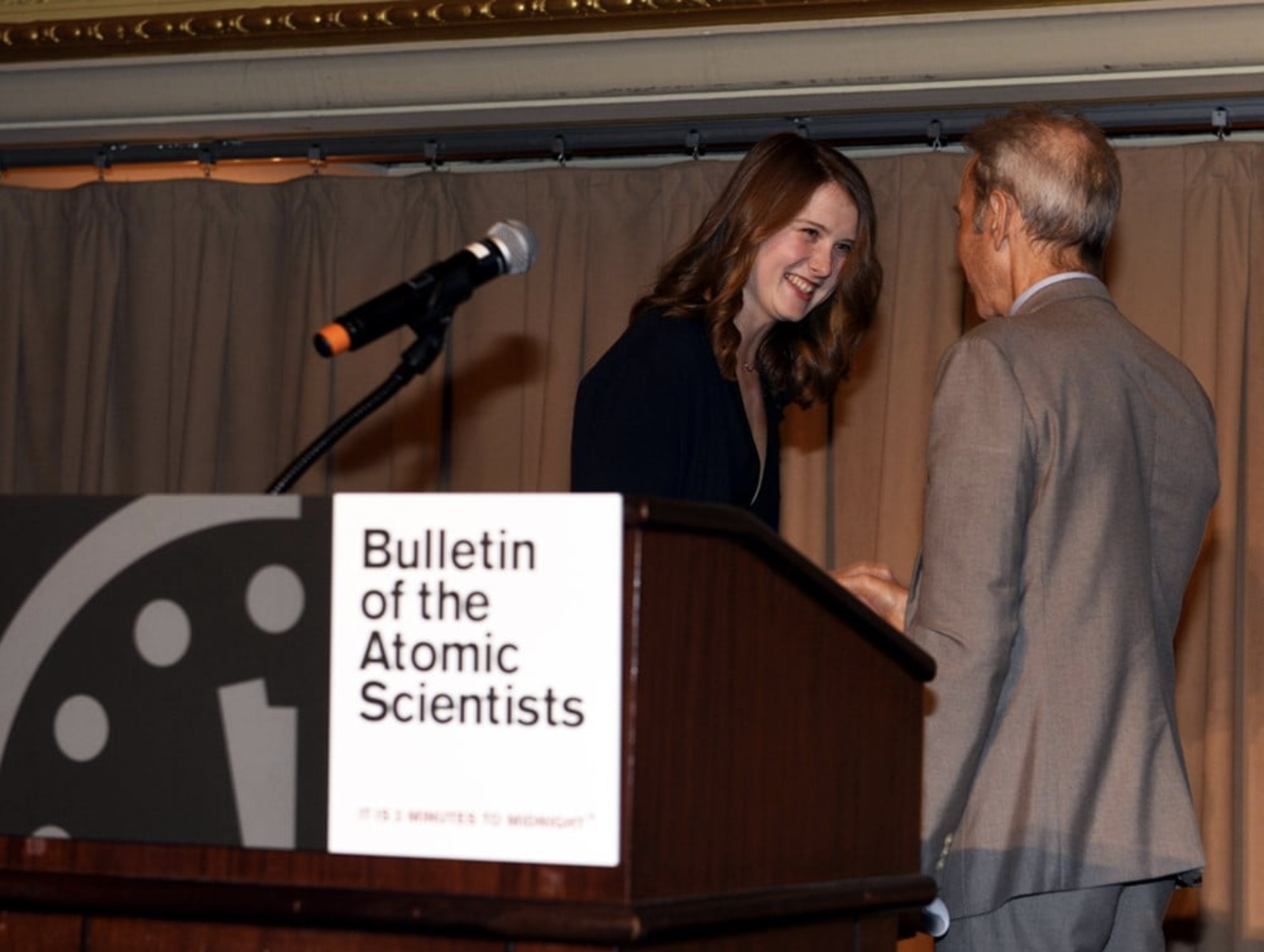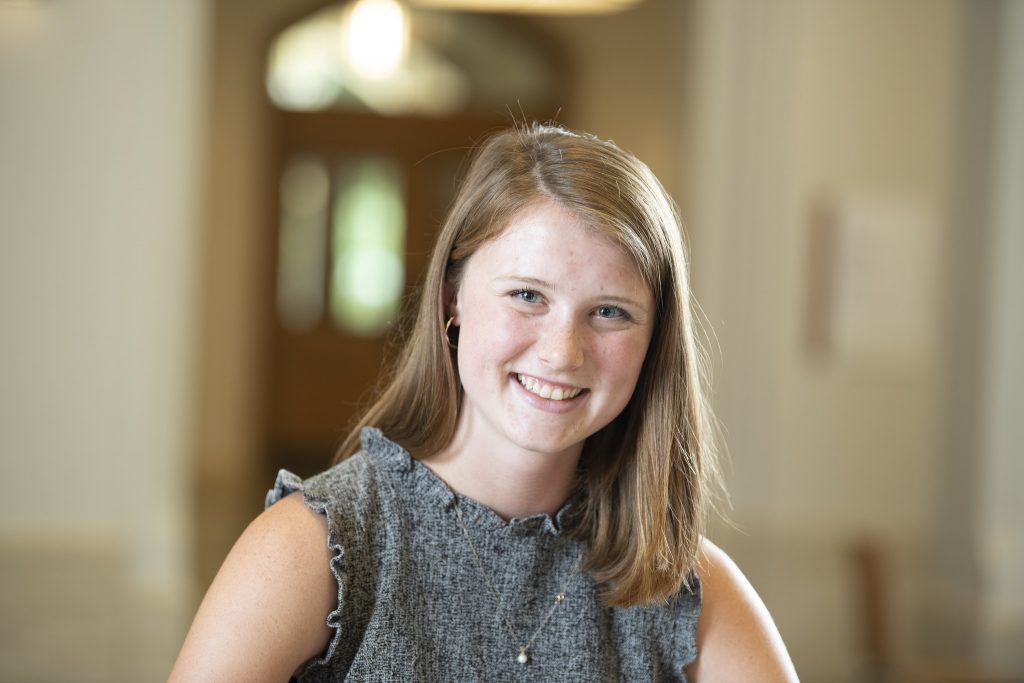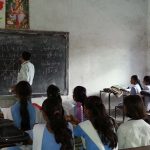Erin Connolly is passionate about reducing the number of nuclear weapons worldwide. She’s also dedicated to encouraging young people, especially women, to pursue national security careers. Connolly combines these two interests by pursuing a master of global affairs at the Keough School while serving as an associate program director for Girl Security, a United States-based nonprofit that mentors school-age girls and young women.
“Nuclear weapons affect everyone equally, yet only a select few people make decisions about them,” said Connolly, who graduated cum laude from the College of the Holy Cross with a bachelor’s degree in international studies.
Women have been traditionally underrepresented in security careers, and that’s where an organization like Girl Security comes in. Using programs designed with women national security experts, child and adolescent mental health professionals, and girls, the organization explores girls’ understanding of personal security and uses it as an inroad for discussion about US national security.
Girl Security also has partnered with the Girl Scouts to create a public policy program, which enables scouts to earn a patch by exploring the fundamentals of US national security and identifying their role in serving and securing their country. Such partnerships help create a more diverse pipeline of future security professionals.
“Having diversity of thought will promote more ethical decision-making at the national level,” Connolly said.

MGA student Erin Connolly speaking at the January 2020 workshop “The Pope and the Bomb: Beyond Deterrence,” held at Georgetown University and co-sponsored by the Kroc Institute for International Peace Studies.
As a master of global affairs student at the Keough School, Connolly says she’s benefited from the expertise of faculty such as George A. Lopez and Gerard Powers, who have focused on nuclear issues throughout their careers, as well as the broader policy expertise of Denis McDonough, former chief of staff for President Barack Obama. She also has learned from her 35 master of global affairs classmates, who represent 18 countries.
“My classmates have a wide variety of on-the-ground peacebuilding experience that had previously been abstract to me,” she said. “They have been integral in expanding my view of the world and traditional policy issues.”
In November 2019 Connolly was honored by the Bulletin of the Atomic Scientists with the Leonard M. Rieser Award. The award recognizes young professionals addressing the world’s most pressing challenges through science and public policy. Connolly received the award along with Kate Hewitt, a federal contractor at the National Nuclear Security Administration, for their essay, “American students aren’t taught nuclear weapons policy in school. Here’s how to fix that problem.”
In their essay, Connolly and Hewitt describe their experience conducting 22 classroom presentations involving more than 1,000 students. Connolly and Hewitt taught the history of nuclear weapons, how they work, and the costs and risks they pose.

“Young Americans are constantly bombarded by news alerts and social media updates, yet when it comes to nuclear policy they are almost completely unaware of the choices to which they are tacitly consenting,” Connolly and Hewitt said in their essay. “The US federal government plans to spend $1.2 trillion over the next 30 years to modernize its nuclear arsenal. Today’s young people will bear much of that cost.”
While the US arsenal must be updated and secure, certain aspects may be unnecessary—yet lawmakers have little accountability for their spending, Connolly said.
“We want to equip students with the information they need to discuss these issues with family and friends, ask questions of their representatives, and even consider careers in the field.”
Connolly currently serves as fellow at the Center for Arms Control and Non-Proliferation, where she previously worked as a research assistant. After graduating from Notre Dame, she hopes to work at the intersection of human and national security, integrating the fundamentals of peace studies that she has learned through the Kroc Institute for International Peace Studies, part of the Keough School.
“The peace studies framework offers a comprehensive approach that takes traditional national security issues out of their silo and places them in a broader context, creating space to innovate,” Connolly said. “Using that framework to approach traditional issues, I want to continue working with girls and women, diversifying the national security space in composition and thought.”



